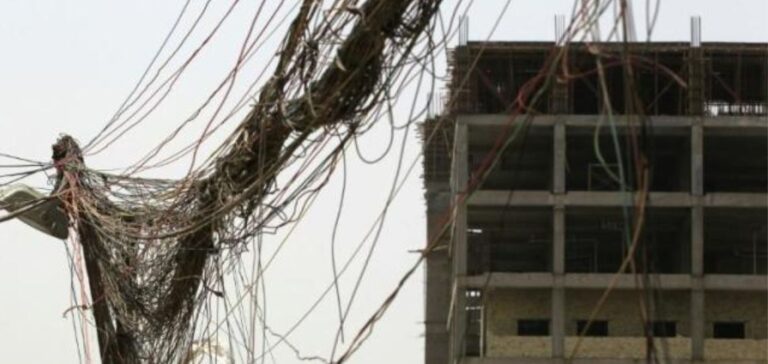Mohamed Jabr has been living with the energy insecurity that Europe fears this winter for decades.
In his Iraq, whose infrastructure has been ravaged by conflict, people resort to the “système D” to get continuous electricity.
For more than 20 years, neighborhood generators and private generators have been roaring through the streets of the country between four and ten hours a day during the summer consumption peaks, the Ministry of Electricity acknowledges.
“Without the generators, all of Iraq would be in the dark,” says Mr. Jabr, a 62-year-old retiree, in his apartment in the poor neighborhood of Sadr City in Baghdad.
“They provide us with electricity for the TV, the refrigerator, an air cooler,” continues this former civil service accountant, who pays $50 a month for this backup electricity.
Energy insecurity or sobriety, load shedding and electricity shortages: with the war in Ukraine, soaring energy prices and Russian gas flows drying up, Europeans are preparing for an unprecedented situation.
In addition to public lighting reductions, individuals are encouraged to cap their consumption, for example by lowering heating and cooking temperatures.
These habits are already part of the daily life of 42 million Iraqis, in a country that is very rich in oil but plagued by wars and endemic corruption.
Because subscriptions to private generators do not always allow the whole household to function. “Depending on the subscription, a customer may be forced to turn off the refrigerator in order to run the air conditioner,” says Khaled al-Chablawi, who has worked for a generator service providing electricity to 170 homes for 13 years.
– Houses in the dark –
Mr. Jabr does not mind that the Eiffel Tower is turned off at 11:45 pm instead of 1:00 am. Or the Christmas lights on the Champs Elysées, which will be turned off every night at 11:45 pm instead of 2 am.
“This is normal. In our neighborhoods, if there’s a technical problem, the area may be without power for a day or two while it’s being repaired,” the balding man adds.
He remembers how, immediately after the American invasion that toppled Saddam Hussein in 2003, “the houses were plunged into darkness.
The bombings had damaged the infrastructure of an already failing electricity sector since the 1991 Gulf War.
“We only had power for two or three hours (a day),” he says. “People had individual generators. They would buy fuel and it would run for a day or two.”
Today, load shedding is less frequent as soon as autumn arrives.
In the summer, with temperatures exceeding 50 degrees, the pressure on generators increases – and subscription rates rise.
To alleviate shortages, which led to sporadic protests in the summer of 2021, Iraq, which is heavily dependent on gas and electricity from neighboring Iran, is seeking to diversify supplies and increase production.
– “Go back” –
It now produces more than 24,000 megawatts (MW) per day, according to Ministry of Electricity spokesman Ahmed Moussa.
A threshold “never reached before”, he adds. However, to avoid blackouts, it would be necessary to exceed 32,000 MW.
Meanwhile, during the summer months, the public electricity supply can vary from 2 p.m., 4 p.m. to 8 p.m. daily, depending on the region, says Moussa.
On an avenue in Sadr City, several private generators are lined up, large engines and fuel tanks hidden by a prefabricated enclosure.
One of them alone supplies 300 homes and 300 stores. Climbing up poles, electrical cables run throughout the neighborhood.
Ali al-Aaraji, 58, the owner of a private college with an enrollment of about 300 students, deplores the “astronomical sums” spent on the generator for his school. About $600 a month, he says. “Electricity is an eternal problem for Iraqis,” he laments, blaming “the American occupation.
If “the Iraqis have been able to endure this situation for three decades”, he wonders about the repercussions of the crisis in Europe.
“The source of economic prosperity is energy. Europe is destabilized,” he summarizes. “It’s going to affect their economy, their industry, their commerce. They’re going to go backwards.”





















